Frito Feet: Why Dog Paws Smell Like Corn Chips
Remember, we always recommend consulting with your vet for any of your dog's health concerns.
What Causes the Corn Chip Smell?
The main culprits for the "Frito," corn chip, or popcorn smell are bacteria - namely, Pseudomonas and Proteus species - that give off the odor naturally. Yeast and other fungi can contribute to the overall odor and "smellscape," too.
Dogs carry these bacteria and fungi on their skin at all times. Since their paws are constantly exposed to dirt and dust, they tend to attract much of the population.
Combine this with the fact that dogs sweat through their paw pads and frequently groom their paws by licking, and you've created a perfect environment - warm, dark, and moist - for growing microbes. Other areas where these microorganisms tend to gather are ears, skin folds, armpits, and the groin.
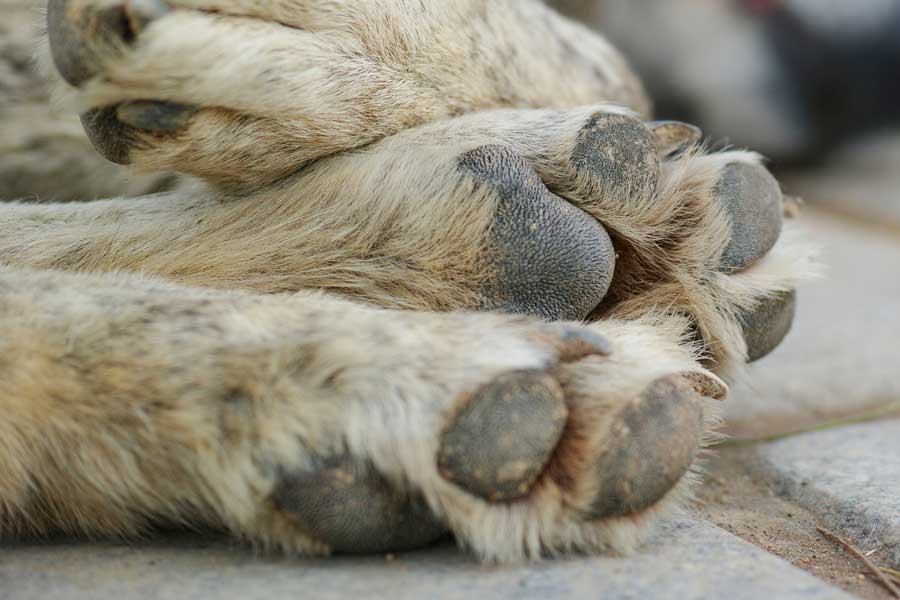
Is the Frito Smell Normal for Dog Paws?
Believe it or not, a slight corn chip smell is normal and no cause for concern. It simply means that the normal bacteria that inhabit their skin and paws are present.
When Does It Become a Problem?
However, when the smell becomes very strong, or begins to smell rotten, it may be a sign of a bacterial (pyoderma) or yeast (Malassezia) infection. An overgrowth of bacteria or yeast can often arise due to allergies or an immune system issue. This will generally be accompanied by a lot of irritation, redness, and itching, and you'll notice your dog licking and chewing at his/her paws far more than normal.
How Can I Tell If My Dog Has a Paw Infection?
- Strong, foul odor instead of mild "corn chip" scent; may smell rotten, stale, or like "moldy cheese"
- Excessive licking or chewing of the paws
- Redness, pustules, or sores on paws or between toes and pads
- Pus or discharge is present (pyoderma)
- Patchy hair loss (often from licking and chewing)
On a related note, if there is a corn chip smell coming from the ears, it could be sign of ear infection (otitis). For breeds with lots of skin folds (bulldogs, basset hounds, boxers, etc.), an excessive stale odor coming from their wrinkles could be a sign of yeast dermatitis.
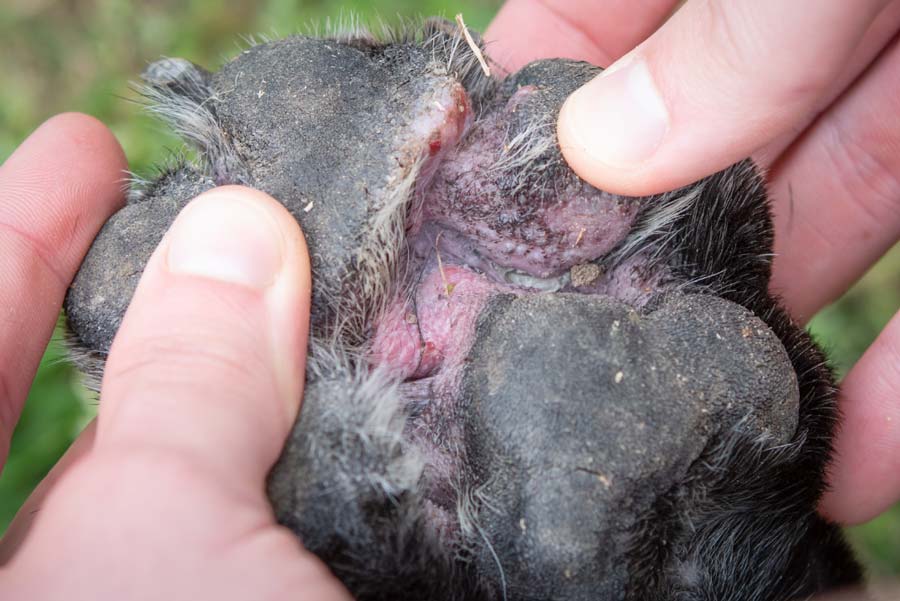
How Are Paw Infections Treated?
The key to stopping an infection is finding out what specific bacteria or fungi are causing it. Your veterinarian will likely take a sample of the skin - via scraping, slide impression, tape impression, or, in some cases, a biopsy - to find out what pathogen(s) is behind it.
From there, antibiotics or anti-fungal topicals are typically prescribed for local infections. Generalized infections are often treated with oral medications, or a combination of the two.
A viable alternative to prescription topicals for a localized infection is Lavengel®. Its concentrated formula is not only effective at significantly relieving the itch, but inhibiting the bacteria and yeast as well. On top of that, it is safe if dogs ingest it, whereas most prescription topicals are not and require wearing an Elizabethan collar (e-collar, or cone).
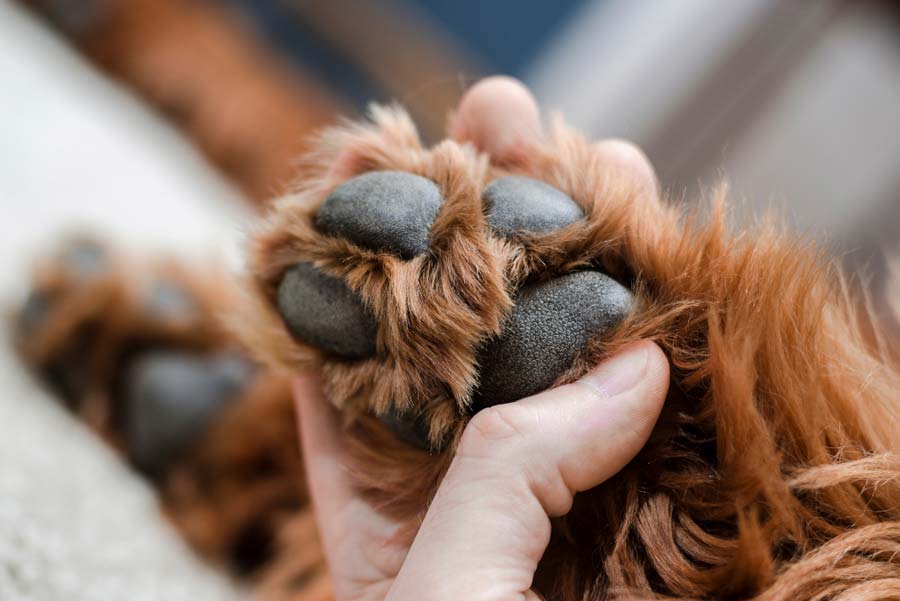
What You Can Do About Frito Paws
Remember, a mild Frito smell isn't a problem. If it has become a bit too much for you, you can keep it at bay with a good hygiene routine.
Be sure to clean and dry wet and/or muddy paws after a walk or outdoor excursion. You can use unscented, alcohol-free baby wipes to do so, or simply give them a bath.
Regular bathing goes a long way, and you can use a pet-friendly antiseptic shampoo to help keep the microbes under control. Wash carefully between toes and pads and make sure to dry them completely afterwards. As a note, be sure not to use a strongly scented shampoo, as this can be irritating to your dog's sensitive nose.
Trim excess fur between their toes to reduce the buildup of sweat and debris, and keep their toenails clipped.
Lastly, keep an eye on your dogs' paws. If they're spending more time licking or chewing them than normal, or focusing on one paw exclusively, take a closer look.
Frito Paw Footnotes + Recap
Can all dogs get Frito paws?
Yes, any breed of dog can acquire the corn chip "aura." The bacteria that cause "Frito paws" - Pseudomonas and Proteus - are common to all canines.
Is the corn chip smell the sign of something bad?
No, this is completely normal. If anything, your dogs' feet should have a slight scent. That said, if the odor becomes much stronger and begins to smell rotten, you may have an infection on your hands - or paws - and you'll want to see your vet and/or get some Lavengel®.
Should I do something about the Frito paw smell?
Unless an infection, allergy dermatitis, pain, or other issue is present, treatment isn't really required.
How can I get rid of the corn chip smell? Is there a home remedy?
Regular bathing, keeping your dogs' paws clean and dry, trimming excess fur between toes, and clipping their nails are simple ways to reduce the odor at home. One home remedy that we've heard of that might help with the smell would be to mix baking soda and apple cider vinegar with water, but it won't do any good against an infection. That's where topical antibiotics or Lavengel® would come into play.
Learn About More Paw and Skin Problems
-
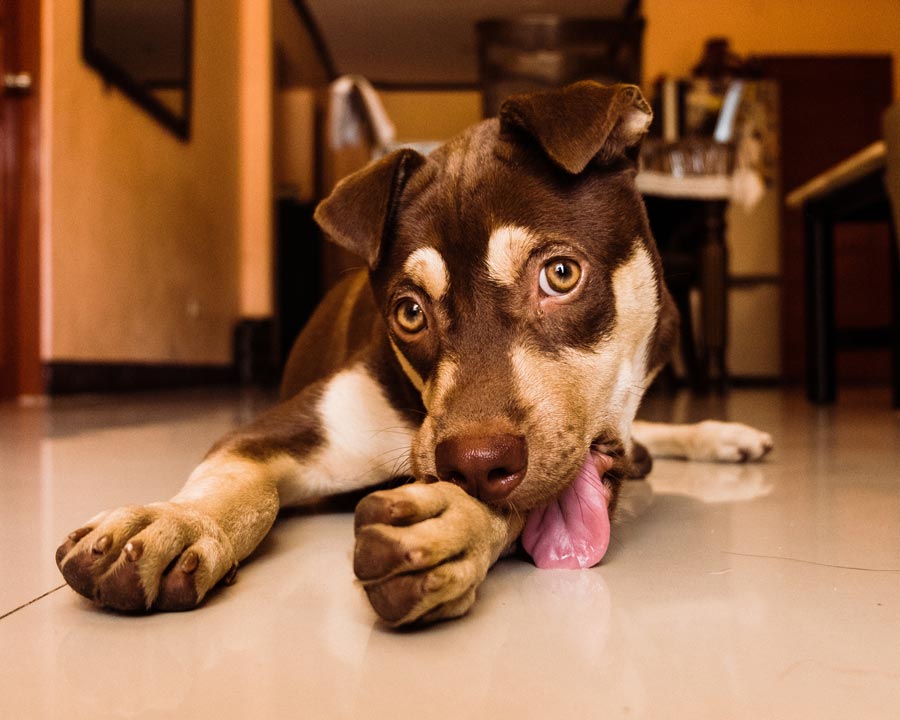
Dog Paw Licking
Sounds gross. Tell me moreWhy do dogs lick their paws so much? We've compiled a comprehensive list of causes and symptoms to look for.
-
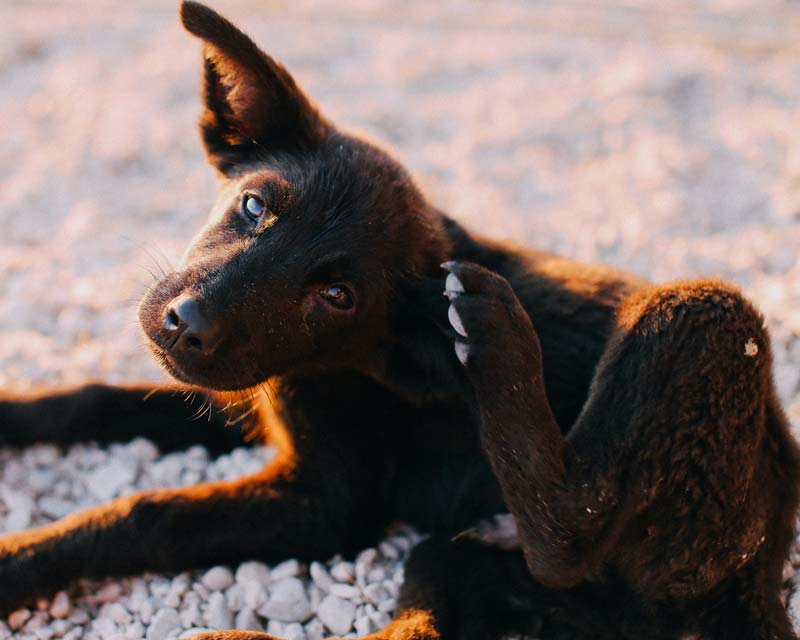
Yeast Infections
Yeast? Isn't that in bread?Nearly all yeast infections arise from a single yeast (fungus) called Malassezia. We'll tell you how and show you what it can look like.
-
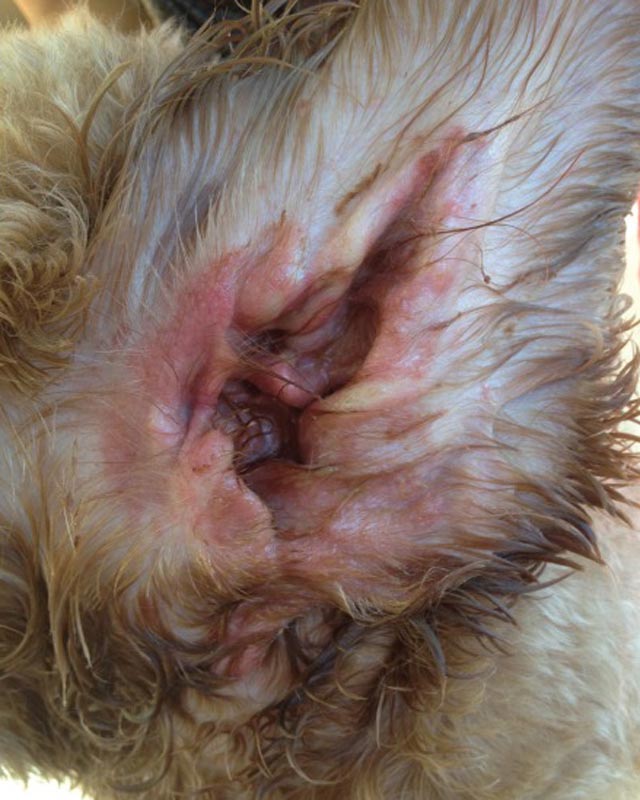
Itchy Ears + Otic Infections
Hear we goIs your dog digging in the ears, or shaking his/her head a lot? There might be an underlying ear problem worth listening to.


